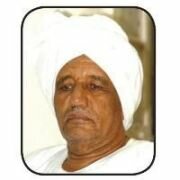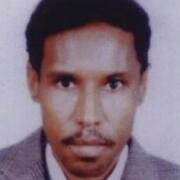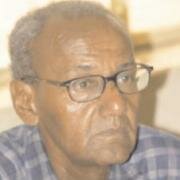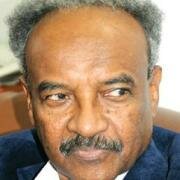The cost of living of people in any nation is always a nightmare to any ruling regime or government. It is measured by the Consumer Price Index (CPI).
Once the CPA reaches the endurances level of the majority of the population, people start in a chain of reactions by grumbling, word of mouth resentment, public criticism, peaceful taking to streets, violent demonstrations, confrontation with the authorities and uncontrolled violence, riot, looting and destruction at which point the national army in fulfillment to its constitutional duties takes over. This recently happened in Tunisia, Egypt and Libya. We are now in Sudan at the stage of public criticism after surpassing the grumbling and the world of mouth resentment.
Last week the parliament members and the Speaker gave the Minister of Finance hard time when he presented the features of the 2017 budget. All of the criticism was on the CPA which exceeded the income endurance level of the majority of people. It is definitely unfair to put the blame on the Finance Minister. He is working in a very complex situation of server economic decline created by political reasons. Before the secession of the South, the annual budgets were 80% dependent on the oil proceeds of S. Sudan. Secession of the South was a calculated short-sighted political issue. The protracted wars in Darfur, S. Kordofan and Blue Nile are entirely political issues. The colossal system of governance of 18 federal states is an expensive political decision to soothe the ambitions leaders in the three areas of wars.
The American sanctions, European countries undeclared sanctions of denying Sudan grants or loans and finally the reluctance of the Arab Gulf countries in propping the Sudan economy are all due to political reasons. Foreign money flow to Sudan dramatically stopped due the foreign policies of leaning to controversial ideological axes e.g. Iran and Turkey recently. So the Minister of Finance is helpless and unable to strike any balance between the huge expenditure on security (67% of the budget, Chapter I – salaries and wages (2016 figure budget is SDG22.3 billion – 16%) and cost of living of people. He is left with only 17% of the budget to address the issue of CPI to satisfy the claims of the people. He said if not for the gold mining proceeds (US$1.5 billion per year) the economy could have collapsed before three years. He is right. Ll exports of Sudan in 2015 were US$3.2 billion, in 2014 wre US$4.5 billion i.e. exports declining and at the same time imports in 2015 were US$8.4 billion, in 2014 were US$8.1 billion. So imports increasing. That is to say the deficit in balance payment on 2015 was US$5.2 billion and US$3.7 billion in 2014 i.e. the deficit is growing. The reaction for this deterioration in economy are clear: secession of the South and the loss of 80% of the budget revenues, continuation of the expensive wars in Darfur and the two area (67% of budget), high cost of local governance (16% of budget in which there are 18 governors, 70 central ministers, 420 MPs in the national parliament, 360 state ministers, 1000 MPs in the states’ parliaments. All this plus the external pressure of the US sanctions, the refraining of European and financial institutions of assisting Sudan, reluctance of Gulf states to give a helping hand, skeptic of the foreign investors to enter in Sudan and finally the exodus of millions of refugees and illegal migrants from Ethiopia, Eritrea, S. Sudan, Syria, Yemen and West African countries.
So, the way-out to avert the situation is by radical, courageous and pragmatic decisions to:
1. Reaching a final solution to crises of Darfur and the two areas by fulfilling the requirements of the roadmap.
2. Normalization of relations with America by meeting its four demands mentioned in my previous article of last week.
3. Restructuring of local governance in 6 or 8 regions.
4. Going bail to non-alignment policies with world.
5. Regulating the current market economy policies by the government intervention on import of commodities.
6. Asking for investment of Gulf states on specific feasible projects on agriculture, livestock and infrastructure.
7. Going back to cotton as a cash crop in areas not less than two million acres and revitalizing the accompanied industries of textile and oil mills.
-
Khartoum Is Ready to Resume Talks in Addis Ababa, but it Takes Two to...Next >





